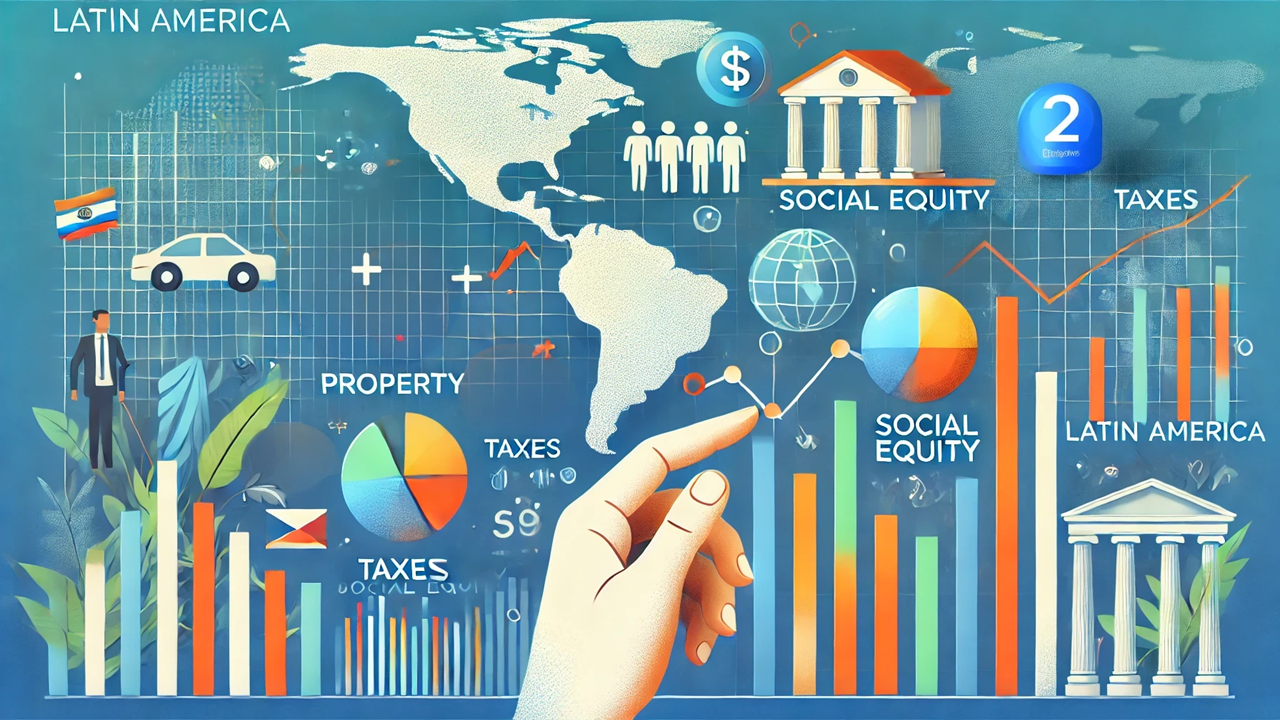The Latin America and the Caribbean Economic Review for October 2024, titled Taxing Wealth for Equity and Growth, presents a comprehensive view of the economic hurdles and fiscal opportunities in Latin America. Published by the World Bank, the report highlights the promise of wealth taxation—especially through property taxes—as a way to not only stabilize government finances but also address longstanding social inequalities. As the region grapples with moderate economic recovery, this report offers a roadmap for governments to consider structural reforms that prioritize sustainable growth.
A Stabilizing Economy with Persistent Challenges
The report opens on an optimistic note, acknowledging that inflation—a top concern for economies worldwide—has started to stabilize across Latin America. However, challenges abound: fiscal imbalances, rising debt levels, and a general lack of long-term growth mechanisms remain. The report points to the crucial need for more targeted investment in infrastructure, education, and regulatory frameworks that can lift both public and private sector productivity.
A crucial aspect of the report is its assessment of the region’s macroeconomic landscape. Although growth is projected at a modest 1.9% for 2024, driven primarily by consumer spending, a strong investment environment is necessary to drive the lasting productivity gains needed for a resilient economy. Without addressing this gap, the report warns, the region may struggle to escape a cycle of slow growth and limited fiscal space.
Nearshoring: An Untapped Growth Opportunity
The U.S.-China trade realignment has opened up unique opportunities for Latin America, specifically through nearshoring—the practice of relocating production closer to home markets. According to the World Bank, this could be a game-changer for Latin American economies looking to attract foreign investment. Yet, despite competitive wages, the region faces significant barriers to becoming a true nearshoring destination.
High corporate taxes, underdeveloped infrastructure, and a workforce that often lacks the specialized skills required by global industries deter potential investors. Addressing these barriers through improved education and business-friendly tax policies could unlock the potential for more vibrant, export-oriented economies.
Wealth Taxes: An Avenue for Fiscal Resilience and Social Equity
Central to the World Bank’s recommendations is the implementation of wealth taxes, particularly property taxes. Wealth taxes, the report argues, could be transformative, offering a way to fund public services while reducing the region’s heavy reliance on income and corporate taxes that often stifle productive investment.
In Latin America, property accounts for a significant share of total wealth—up to 80% in some cases. Yet, property taxes generate a surprisingly low percentage of revenue, amounting to only 2% on average. To harness this untapped potential, the report recommends modernizing property valuation methods and tax collection systems. When properly administered, these reforms could not only boost revenues but also ensure that the tax system is more equitable.
Billionaire Tax: A Limited but Symbolic Proposal
The idea of a “billionaire tax,” as proposed by leaders like Brazil’s President Lula da Silva, also finds space in the report. While it acknowledges the appeal of taxing the ultra-wealthy, the report emphasizes that such a tax may yield limited revenue given the relatively small number of billionaires in the region. However, targeting the wealthiest with tax policies that encourage social responsibility could help shift public perception and strengthen social cohesion.
Supporting Sustainable Development through Land and Property Taxes
Rural property taxes could also play a role in promoting environmental protection, suggests the World Bank. By imposing taxes on unused or underutilized land, governments could incentivize more sustainable land practices, potentially reducing deforestation and promoting conservation efforts. Moreover, channeling these tax revenues to local governments could empower them to meet public service needs without relying heavily on national government transfers. This, the report argues, would help to correct fiscal imbalances and allow local authorities more control over their economic priorities.
A Path Forward: Strategic Tax Reforms and Investment in Growth
The report concludes with a clear call to action: Latin America must strategically reform its tax systems and prioritize investments that drive productivity. Wealth taxes, particularly on real estate, are highlighted as tools to create fiscal space and promote social equity. These recommendations are timely as governments look for ways to finance growth without overburdening productive investments.
In sum, the World Bank’s Latin America and the Caribbean Economic Review provides a balanced yet pressing analysis of the region’s economic landscape. It encourages policymakers to consider innovative solutions like wealth taxes to not only address fiscal challenges but also to pave the way for a more equitable, resilient economy that benefits all citizens.











